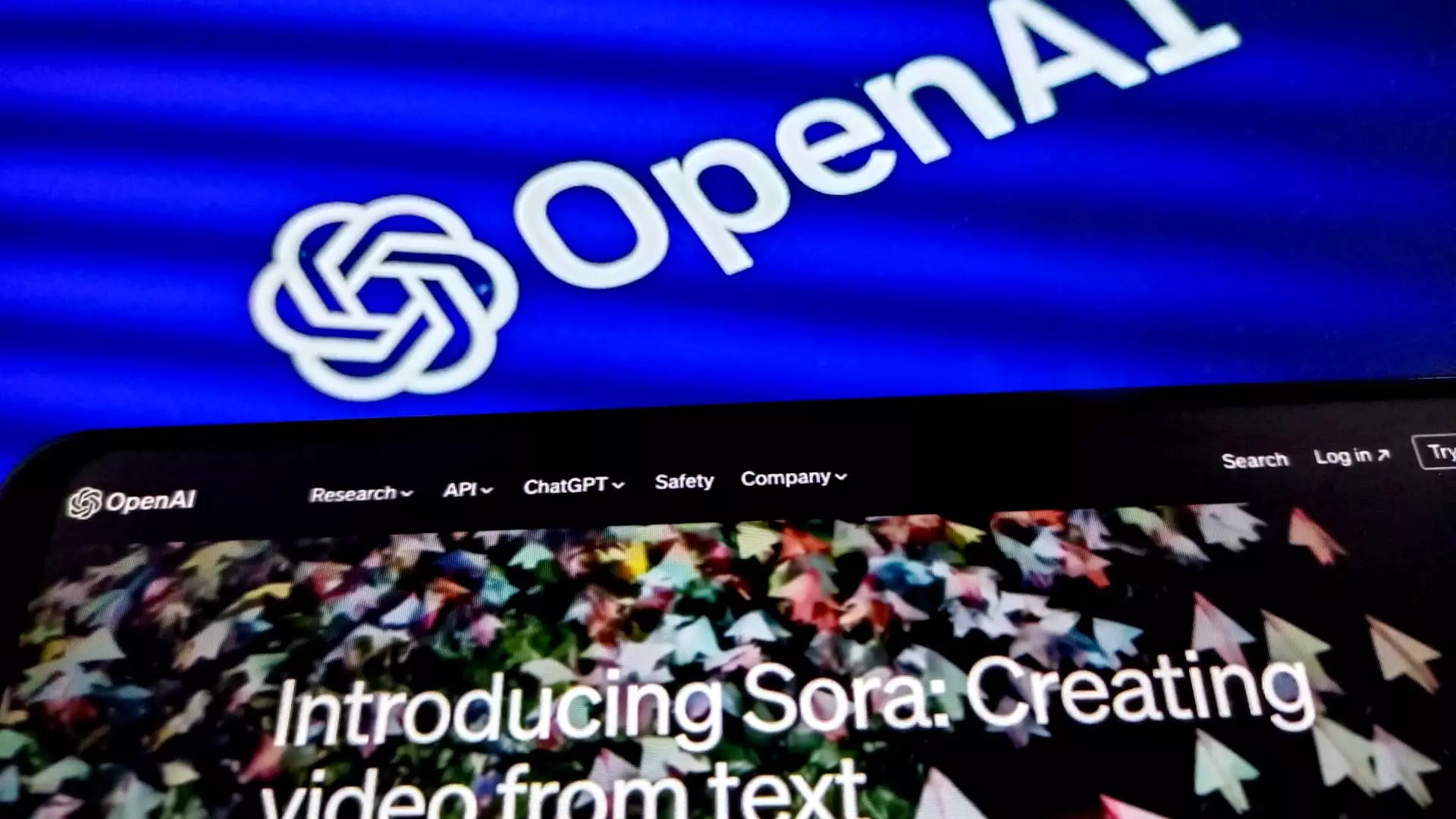As OpenAI navigates a turbulent landscape marked by significant executive departures, the company’s leadership is actively striving to maintain investor confidence. Recent announcements regarding key resignations could have raised eyebrows within the investment community, but CFO Sarah Friar is determined to quell any fears. With a major funding round on the horizon, OpenAI aims to solidify its status as a frontrunner in the competitive realm of artificial intelligence.
The news of Chief Technology Officer Mira Murati’s resignation serves as a notable indicator of the challenges facing OpenAI. Having spent approximately six and a half years with the organization and even taking on the mantle of interim CEO during a period of upheaval last year, Murati’s exit highlights the instability that can come with rapid growth and change within the tech sector. Additionally, the departure of seasoned research executives like Bob McGrew and Barret Zoph on the same day only intensifies concerns regarding talent retention at the company.
These shifts in leadership are not merely anecdotal; they resonate deeply within the culture of an organization that prides itself on collaborative innovation. For a startup valued at an impressive $150 billion and supported by industry giants like Microsoft, the rotation of executive talent could potentially hinder its ability to sustain momentum. As investors grapple with these changes, they must also consider the broader implications for the company’s operational and strategic capabilities in the near future.
In an effort to reassure stakeholders, Friar has been proactive in communicating the company’s ongoing commitment to innovation and growth. In a recent email to investors, she emphasized the depth of talent still present within OpenAI, assuring them that the company has a “talented leadership bench” capable of continuing its ambitious endeavors. Furthermore, Friar highlighted that the company is on the brink of completing a $6.5 billion funding round led by Thrive Capital, bolstering the expectation that OpenAI will have the resources necessary to push forward its vision for artificial intelligence.
The ability to attract significant investment, particularly in an oversubscribed funding round, speaks volumes about the investor confidence that OpenAI still commands. The anticipated valuation of $150 billion underscores the lucrative potential that many see in the AI landscape. However, it’s vital to recognize that financial backing alone cannot mask the inadequacies that may arise from executive turnover. The success of the forthcoming funding round will ultimately hinge on investor perceptions of OpenAI’s stability and strategic direction amidst these tumultuous changes.
The departure of multiple high-profile executives poses a unique set of challenges for OpenAI. While the integration of fresh ideas can catalyze innovation, the loss of established leaders can also lead to a period of uncertainty as companies work to fill key roles. In anticipation of this, Friar has indicated that they will host calls with investors to introduce new leadership from product and research teams, thereby keeping stakeholders engaged and informed.
Moreover, as OpenAI seeks to establish sustainable revenue models, the pressure to deliver results becomes increasingly pronounced. Investors are naturally keen to see a return on their investments; therefore, the operational efficiency that comes from a cohesive leadership team will be critical to the company’s long-term success. Co-founder Ilya Sutskever’s move to establish a competing enterprise alongside other deflections from the company arguably illustrates the competitive intensity within the AI sector, where poaching talent has become a common thread among emerging rivals.
OpenAI finds itself at a crossroads, facing challenges that are characteristic of rapidly evolving technological environments. The departure of influential leaders alongside burgeoning investor interest underscores a complex reality where growth aspirations must coexist with an immediate need for stability. As the company gears up for a substantial funding infusion and reassures its stakeholders, it must not lose sight of the foundational team dynamics that foster innovation. The coming months will reveal whether OpenAI can navigate these transitions successfully, harness the strengths of its existing talent, and continue to lead in the artificial intelligence arena.

